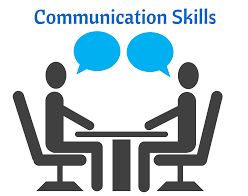
-
15 May
-
9 Most Important Business Communication Skills
Communication is key in every aspect of life, but it’s especially crucial in the workplace. Whether you’re just starting out in business or are further along in your career curve, there are specific business communication skills necessary for success. What business communication skills and “soft skills” will help you work smarter? Here are 9 communication skills every professional should master.
- Active listening skills: The ability to listen to and incorporate other views in your communication. Listening shows you value opinions outside of your own and are open to new concepts. As a result, your audience views you as an equal partner and you can come to a solution that benefits the greater good. An active listener will allow pauses for interjections, repeat other people’s words and ask questions to affirm his or her engagement in a conversation.
- Writing skills: Using specific data and examples in written communication to make a solid case, and communicating proposed action items. Written communication for business should be brief but informative, and helps an audience focus on only the most important points. Good written communication also includes adequate follow-up, which closes the communication loop and shows proactive activity towards goals
- Verbal skills: The ability to communicate information (ideas, thoughts, opinions and updates) in a clear manner verbally. Like good written communication, good verbal communication in the workplace is also concise and specific (researchers have found that today’s attention span amounts to only 8.25 seconds). Verbal communication allows employees to engage with one another in-person and come to a mutually agreeable consensus.
- Interpersonal communication skills: Building trust and strong relationships with key stakeholders in a business. Another “soft skill,” successful interpersonal communication allows employees to find common ground, display empathy and build bonds with one another. Interpersonal communication means connecting on more than business level, but a personal level as well.
- Teamwork skills: Effectively communicating with others who may have different opinions and skill sets. In a business setting, this means putting aside personal differences and working toward a common goal. For teamwork to be successful, all parties must recognize that combined efforts are worth more than individual contributions.
- Presentation skills: Presenting information and ideas to an audience in a way that is engaging, motivating, and effective. This method of business communication allows one individual, or a group of individuals, to share evidence to support an idea or argument. A good presenter is also a good storyteller, using data, stories and examples to influence an audience to act toward a desired outcome.
- Selling skills: Persuading stakeholders to pursue an idea, decision, action, product or service. Selling skills extends beyond just those whose jobs fall under the sales department. Employees with selling skills can use these skills to influence other employees to buy into a project, team members to choose a side, or executives to offer new products or services.
- Negotiation skills: Reaching a mutually beneficial solution by understanding and leveraging the other side’s motivations. A mutually beneficial or “win-win” solution is one that both sides finds favorable, and maintains positive relationships for future interactions. In order to achieve this outcome, you’ll need to discover what factors would be most influential and agreeable for the other side.
- Networking skills: Displaying business value and encouraging others to enter into your business network. In order to network successfully, you’ll need to be interesting enough that others desire to partner with you in some way. A large business network can also be a safety net, and means you have more people to rely on when you require help, information or services.
Don’t feel discouraged if you don’t possess every business communication skill on this list – not many do. As with any changes in one’s habits, mastering skills that aren’t second nature require time, experience, practice and patience. First, identify which of these skills are your weakest, and then create a plan on how to improve these communication skills to work smarter and more effectively. Good luck!
Source by: https://bemycareercoach.com/soft-skills/business-communication-skills.html
- 15 May, 2019
- 168Solution Public Class
